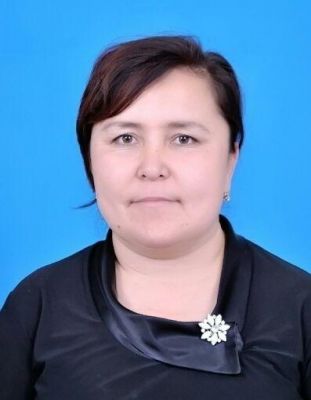Статья Алимовой Маъмурахон
8 апреля 2019 - Фарит Габдулхаков
Рейтинг: 0
Голосов: 0
814 просмотров
Комментарии (0)
Нет комментариев. Ваш будет первым!
| Добавить комментарий |

В данной статье рассматривается необходимость оценки применяемой методологии в обучении языку. При правильном рефлексировании преподаватель может выбрать наиболее оптимальный подход к обучению.
WHY REFLECTION IMPORTANT FOR PROFESSIONAL DEVELOPMENT
Mamura Alimova, Namangan State University
While studying at Advanced Certification in English Language Teaching (ACE) Course of the University of Oregon, I was asked to do a task on things we had learned during the course. The problem was to think about the past and evaluate my own learning process. Reflecting our own experience was not used widely in our context before and we have difficulties in evaluating our own progress.
Teachers tend to have a lot on their minds. While teaching, we think about the subject matter, lesson plans, classroom management, checking on students’ comprehension, adjusting plans as needed, and more. With so much going on, we tend to rely on instincts that we have developed over years of teaching practice. There is no time for reflection in the classroom, and often little time for it outside the classroom, as we focus on grading, planning, organizing, and meetings before moving on to our responsibilities outside of work.
Sheppard (2016) states that, “Reflection, however, is an essential component of growing as a teacher.” This is true in every teaching context. When we reflect we try to think about successes and failures of our teaching. After every lesson we think about our lessons and try to reflect our activities, lesson plans, students’ participation and other aspects of the lesson. For the first time, I began writing short diaries after attending teacher training workshops. At that time I didn’t fully understand the importance of using diaries. When I read now those diaries I notice how much I changed my teaching skills and developed professionally.
“Reflective teachers become aware of problems in their classes, and consider possible solutions to these problems. Action research can be based on trying a potential solution to a classroom problem” Sheppard, B (2016) Reflective teaching.
Reflective teaching is one of the essential parts of CPD. Every teacher tries to have successful lesson and see their students to be good language learners. We cannot always have the same students, their levels could be different, some of them may come to the course without any motivation and some of them may have different problems at home. These factors influence to our teaching. When I read about reflecting in this week, I found useful tools for doing action research and solving the problem with the help of it. Action research is the way of solving above mentioned problems.
In my teaching context, I have different teaching problems that I can work on. I decided to choose the problem of encouraging multilevel students to participate equally in speaking activities. In my class I have heterogeneous level students. Students who have higher level of instruction participate actively in activities during lessons but low level students are usually shy and they are passive in my lessons. I need to know in what situation they are passive and what makes them to be very passive. I am going to investigate this factor and find out the solutions by designing questionnaires for the learners and by recording my lessons. According to Green (2003) “Keep a record of instances when individual students fail pragmatically, rather than grammatically of lexically, during communicative activities. After some time review this record in order to see if you can identify an area in which your particular class needs help in the form of awareness raising”. While teaching lessons you cannot find the answer to your problems, if you record them, after classes you may watch and analyze thoroughly the class components and I want to find the reasons by analyzing my recording. Another type of finding solutions is giving questionnaires to the students. Questionnaires help teachers find out more about pitfalls of the lessons and encourages them to try out new ways of motivating students and finding solutions for the problematic issues.
Regardless of the type of training you have experienced, it is important for teachers to be familiar with current instructional methods and their underlying principles as well as with effective classroom techniques, materials, and assessment strategies appropriate to the type of course and the type of students you will be teaching. Clearly, your preparation will need to be customized according to the focus of the class – be it a reading course, a conversation course, a vocationally oriented course, a course for adults, or a course for young learners. Alternatively, you may be teaching in a program for English for Specific Purposes (ESP) or English for Academic Purposes (EAP).
References:
1. Sheppard, B., (2016) Reflective teaching, Advanced Certification in English Language Teaching (ACE) Course 2 University of Oregon.
2. Green, N.H.,(2003) Enhancing Pragmatic Awareness, Action research in action, RELC Portfolio series 8 published by SEAMEO Regional Language Centrе
Нет комментариев. Ваш будет первым!
| Добавить комментарий |